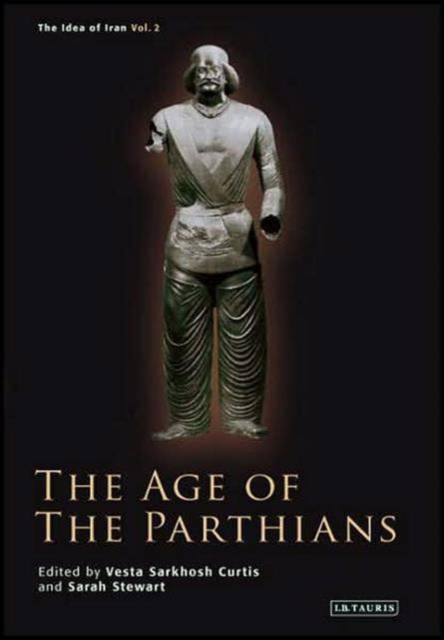
- Afhalen na 1 uur in een winkel met voorraad
- Gratis thuislevering in België vanaf € 30
- Ruim aanbod met 7 miljoen producten
- Afhalen na 1 uur in een winkel met voorraad
- Gratis thuislevering in België vanaf € 30
- Ruim aanbod met 7 miljoen producten
Omschrijving
The Parthians were nomadic horse-warriors who left few written records, concentrating rather on a rich oral and storytelling tradition. What knowledge we have of this remarkable people derives primarily from their coinage, which mixed Hellenism with Persian influences. In this book, distinguished scholars examine - from a variety of perspectives--the origins of the Parthians, their history, religion and culture, as well as perceptions of their empire through the lens of both imperial Rome and China.
Charting over 1000 years of history, The Idea of Iran series offers a significant new appraisal of one the most fascinating, but also (at least in the West) relatively little known, of the great civilizations of antiquity. Comprising four substantial volumes, which have emerged from a series of seminars held under the joint auspices of the London Middle East Institute and the British Museum, and supported by the Soudavar Memorial Foundation, the series explores the empires which have shaped the culture of Iran. Beginning with the Achaemenid dynasty of Cyrus the Great, which founded Persian imperial rule in the middle of the sixth century BCE, the series goes on to examine, amongst other key topics, the society, religion, and government of ancient Iran under the Parthians, Sasanians and the Arab rulers of the early Islamic period. The Idea of Iran will be mandatory reading for all serious scholars and students of ancient and early medieval Iranian history.
Specificaties
Betrokkenen
- Uitgeverij:
Inhoud
- Aantal bladzijden:
- 176
- Taal:
- Engels
- Reeks:
- Reeksnummer:
- nr. 2
Eigenschappen
- Productcode (EAN):
- 9781845114060
- Verschijningsdatum:
- 1/01/2007
- Uitvoering:
- Hardcover
- Formaat:
- Genaaid
- Afmetingen:
- 165 mm x 240 mm
- Gewicht:
- 485 g

Alleen bij Standaard Boekhandel
Beoordelingen
We publiceren alleen reviews die voldoen aan de voorwaarden voor reviews. Bekijk onze voorwaarden voor reviews.








